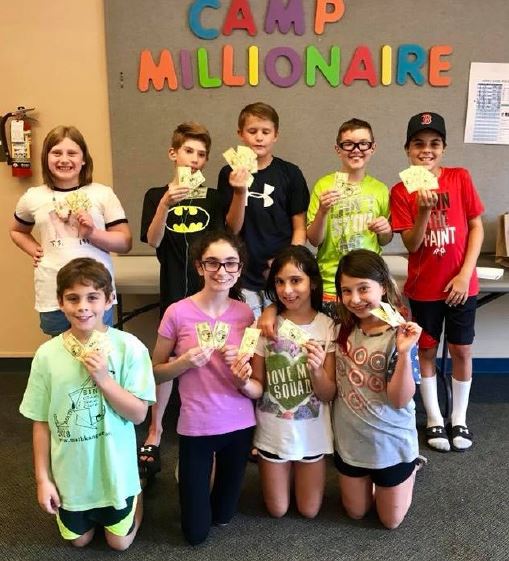Blog Posts | April 23, 2019
Share ThisBy Emily Patterson

In April, tax season comes to a close, and many people are left wondering how they can better handle their finances in the year to come. Although a financial planner or the bookstore’s self-help aisle might be the first places people turn for advice, they shouldn’t overlook their public library.
From 2017 to 2018, Bellingham Public Library in Massachusetts ran “Financial Literacy for All Ages,” a year-long series, partially funded by Grants to States, to help community members learn financial basics. They offered 26 workshops: 15 for adults, seven for middle school students, and four aimed at all ages.
“I could see it was something that our community needed,” said Bellingham Public Library Director Bernadette Rivard. “Many people don’t have good money management skills, so I wanted to cover the basics.”
Basic Programs Fill Basic Needs
Among the most popular classes for adults was a course called “Making a Budget,” which taught members of the community how to successfully manage their income, avoid unnecessary spending, and plan their savings. It was such a hit that the library offered the class three times. Other popular courses covered credit scores, couponing, and how to manage overspending. According to a post-program survey, more than 80 percent of participants felt they had “learned a lot” from the classes.
Workshops and classes weren’t the only way community members could participate in “Financial Literacy for All Ages” programming. The library promoted Universal Class Online Courses on financial topics and fostered a school, library, local bank partnership for high school students. The library also worked with local schools and a bank to distribute pamphlets on a variety of financial topics including job scams, mutual funds, paying for college, and making a budget. BPL also hosted a community shred program, where people could dispose of their sensitive documents.
Financial Literacy for Kids
Making financial literacy interesting to children can seem like a real challenge, but Bellingham Public Library found a solution for that, too. A game called “Camp Millionaire” proved to be a success. In the game, kids get their paycheck, taxes are taken out of it, and then they must pay their bills, such as their rent and phone bill. Each child has $100 left over, which they can choose to spend or save. The goal of the game is for kids to be able to pay their “bills” on passive income.
“It kept kids moving and interested. They aren’t just sitting and listening,” said Rivard. “The game makes learning financial literacy fun and interactive.”
Camp Millionaire was such a success, it’s been slated to continue as a long-term part of the library’s planned activities.
Lessons Learned on Financial Literacy Education
The director of Bellingham Public Library, along with library staff and knowledgeable community members, spent a year teaching people about financial literacy. In the process, they learned important lessons that can help other libraries start similar programs.
- Seek out community partners: Paying workshop instructors was often out of the library’s budget. However, local banks and other businesses can be knowledgeable partners in helping plan, teach and execute programs.
- Stay flexible when planning programming: The library started the year with a survey asking community members what workshop topics they wanted. However, the most popular programs were not what the survey results indicated. BPL found a better approach was staying flexible. They scheduled a few classes and kept an eye on the registration numbers. Then, they re-offered programs with high attendance, such as the budgeting workshop. Lesson learned: what people say they want may not be what they really need.
- Keep it short and simple: People digest information—especially complex financial topics—better in short formats. Using flyers and brochures with links to more information proved to be a successful approach.
- Create a safe space: For many community members, the hardest part wasn’t learning a new financial skill, but admitting that they needed help in the first place. The library found creating that safe space was as important as the actual content.
- Take advantage of government resources. The Consumer Financial Protection Bureau has a lot resources for libraries about the role they can play in promoting financial literacy.
In the coming years, look for more public libraries following Bellingham’s example, adding financial literacy programming to their schedules. Already, nine more State Library Administrative Agencies have added goals around addressing financial literacy needs to their five year plans.
Does your library offer financial literacy programs or services? Tell us on Twitter or Facebook!
